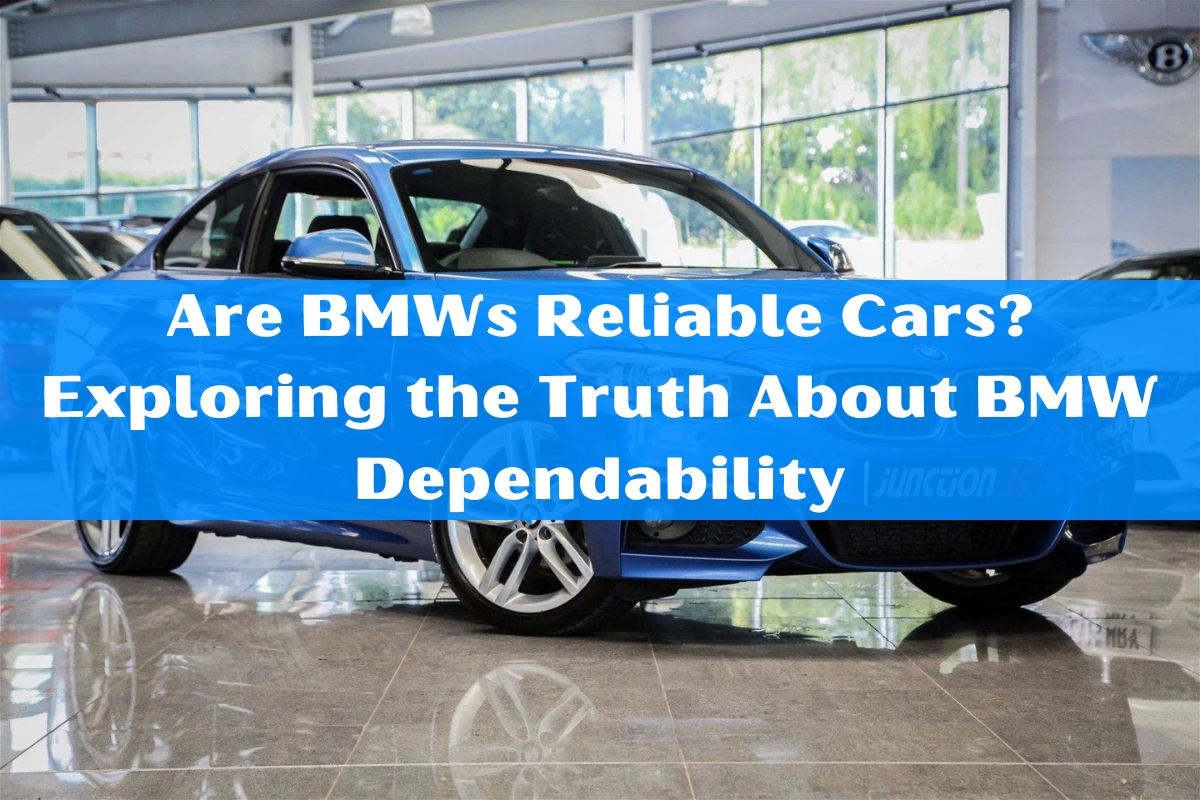Are BMWs Reliable Cars? Truth About BMW Dependability

When it comes to luxury car brands, few evoke the same level of enthusiasm and reputation as BMW. Known for their dynamic driving experience, sleek German design, and powerful engines, BMWs have long been a symbol of prestige and performance. However, one aspect of BMW ownership that often raises questions is the brand’s reliability. Are BMWs reliable cars, or do they come with a host of expensive problems that plague their owners?
In this comprehensive guide, we’ll take an in-depth look at BMW’s reputation for reliability, analyze the data from industry-leading studies, and examine the common issues that BMW owners may face. We’ll also explore strategies for maintaining BMW reliability and provide recommendations for prospective buyers. By the end, you’ll have a clear understanding of whether a BMW is a wise long-term investment or a luxury car best avoided.
BMW’s Reputation for Reliability
BMW has long been associated with exceptional German engineering and a driving experience that is second to none. The brand’s slogan, “The Ultimate Driving Machine,” has become synonymous with thrilling performance and handling. However, when it comes to reliability, BMW’s reputation has been more mixed.
Historically, BMWs were often praised for their build quality and mechanical robustness. Models like the E39 5 Series and E46 3 Series were renowned for their dependability and longevity, with many owners reporting trouble-free ownership experiences. This reputation helped solidify BMW’s position as a premium automaker that could deliver both performance and reliability.
Analyzing BMW Reliability Data
To get a clearer picture of BMW’s reliability, it’s important to examine the data from industry-leading sources. One of the most widely respected authorities on automotive reliability is J.D. Power, a global market research firm that conducts extensive surveys and studies on vehicle quality and dependability.
According to J.D. Power’s 2022 Vehicle Dependability Study, BMW ranked 8th out of 31 automotive brands, placing it firmly in the top tier. This study measures the number of problems experienced per 100 vehicles (PP100) during the first three years of ownership, with a lower score indicating higher reliability.
In the same study, several BMW models stood out for their exceptional reliability, including the 2 Series, X1, and X6. The 2 Series, in particular, was recognized as the highest-quality small premium car, further solidifying BMW’s reputation for building reliable vehicles.
However, not all BMW models have fared as well in reliability assessments. The 7 Series, for example, has been known to struggle with a range of issues, from electrical problems to water pump failures. The brand’s larger and more technologically advanced models, such as the X7 SUV, have also faced reliability challenges, with ConsumerReports.org giving them average or below-average reliability ratings.
Reliability of Specific BMW Models
When it comes to BMW reliability, it’s important to look at individual model performance rather than treating the brand as a monolith. Here’s a closer look at some of the most and least reliable BMW models:
Most Reliable BMW Models
BMW 3 Series: The iconic 3 Series has long been the backbone of the BMW lineup, and it’s also one of the brand’s most reliable models. Praised for its excellent driving dynamics, the 3 Series has consistently scored well in reliability studies, with the latest generation (G20) earning a solid 4 out of 5 rating from J.D. Power.
BMW 5 Series: The mid-size 5 Series has a reputation for blending luxury, performance, and dependability. The latest G30 generation has been particularly well-received, with a J.D. Power reliability score of 88 out of 100, placing it among the most reliable BMWs.
BMW X3: As one of BMW’s most popular SUV models, the X3 has proven to be a reliable choice. Both the previous-generation F25 and the current G01 models have earned high marks for dependability, with the G01 scoring an impressive 88 out of 100 in J.D. Power’s reliability study.
BMW X1: BMW’s entry-level SUV, the X1, has also demonstrated strong reliability. With a focus on practicality and a less complex feature set compared to larger BMW models, the X1 has managed to avoid many of the common reliability pitfalls associated with the brand.
Least Reliable BMW Models
BMW 7 Series: BMW’s flagship luxury sedan, the 7 Series, has struggled with reliability issues over the years. From electrical gremlins to problematic air suspension systems, the 7 Series has earned a reputation for being one of the less dependable BMWs on the market.
BMW X7: As BMW’s largest and most technologically advanced SUV, the X7 has faced its fair share of reliability challenges. Owners have reported issues with the electrical system, as well as problems with the vehicle’s complex features and components.
BMW 8 Series: The recently revived 8 Series coupe and convertible have yet to establish a long-term reliability track record. While early indications are promising, the 8 Series’ cutting-edge technology and high-performance focus may make it more susceptible to reliability problems down the line.
Common BMW Reliability Issues
Despite BMW’s reputation for engineering excellence, the brand’s vehicles are not immune to reliability problems. Some of the most frequently reported issues with BMWs include:
- Water Pump Failures: BMW’s water pumps have been known to fail prematurely, leading to overheating issues and the potential for more severe engine damage.
- Electrical System Malfunctions: From glitching infotainment systems to faulty door locks, BMWs have a history of electrical gremlins that can be challenging and expensive to diagnose and repair.
- Steering Wheel Vibrations: Some BMW models, particularly the 3 Series, have been prone to steering wheel vibrations, often caused by fatigued thrust arm bushings.
- Engine Issues: While not universal, BMW engines have occasionally suffered from problems like excessive oil consumption, ignition coil failures, and timing chain stretching.
These issues, while not present in every BMW, can be costly to address and contribute to the brand’s reputation for higher-than-average maintenance and repair expenses.
Maintaining BMW Reliability
Keeping a BMW running reliably over the long term requires diligent maintenance and care. Unlike some more basic transportation appliances, BMWs demand a higher level of attention and investment from their owners.
Regular servicing, including oil changes, fluid flushes, and replacement of wear items, is crucial for maintaining BMW dependability. Neglecting these routine maintenance tasks can lead to more significant (and costly) problems down the road.
Additionally, BMW owners should be prepared for the higher-than-average cost of parts and labor associated with their vehicles. While the initial purchase price of a used BMW may be tempting, the ongoing ownership costs can quickly add up, especially as the vehicle ages.
Conclusion: Are BMWs Reliable Cars?
In summary, the answer to the question “Are BMWs reliable cars?” is a nuanced one. While the brand has produced some exceptionally dependable models, such as the 3 Series and 5 Series, it has also struggled with reliability issues in some of its more complex and technologically advanced offerings, like the 7 Series and X7.
Ultimately, BMW’s reputation for reliability is a mixed bag. The brand has made strides in improving the dependability of its vehicles, but there are still some areas where owners may encounter more than their fair share of problems. Prospective BMW buyers should carefully research the specific model they’re interested in, consider the cost of ownership, and be prepared to invest in proper maintenance to ensure their BMW remains a reliable and enjoyable daily driver.
For those willing to put in the effort and budget, a well-maintained BMW can be a rewarding and dependable luxury car. However, for those looking for a more worry-free ownership experience, alternative premium brands may be the better choice.






